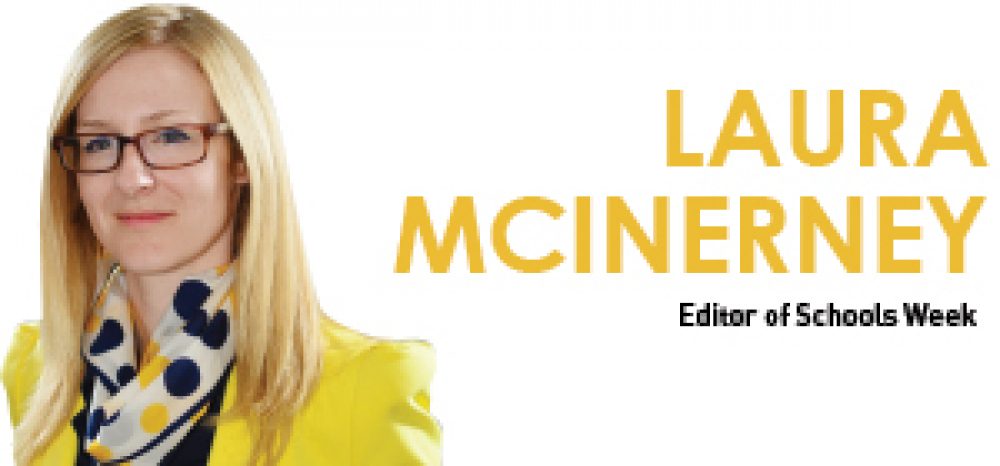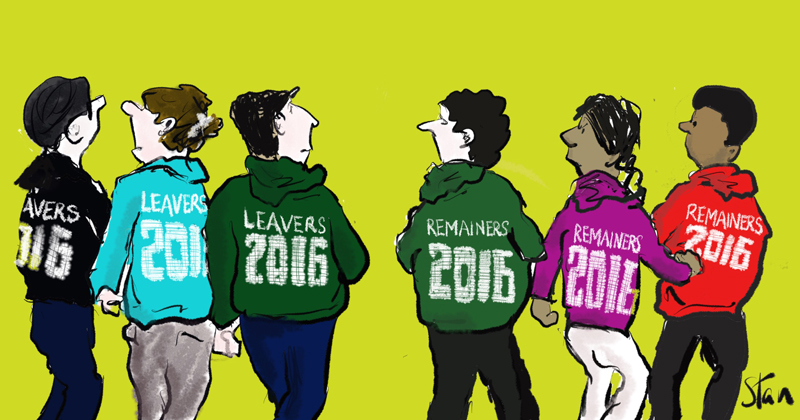Next week there will be an election on the European Union. As a former citizenship teacher, I can tell you life will be easier for those citizenship teachers still out there if the country votes to leave. Pupils hate learning about the EU, teachers hate teaching it. It’s abstract, and far away, and difficult to explain.
So is the Second World War. So is respiration. Both are still important to teach, though, and so is the EU. Like or loathe it, the impact on daily life is as huge – even if as invisible – as the war and the oxygen in our lungs.
At Schools Week we’ve always taken a decidedly apolitical line. What matters is that people have information from which they can make their own choices.
Our approach to the upcoming referendum has been no different. In recent weeks we looked dispassionately at issues such as teacher visas and the need for more foreign language teachers, many of whom are coming from within Europe. Teacher trainee figures are, for the first time, looking vaguely healthy this year, partly because of a 5 per cent increase from teachers living outside Britain but within the EU.
What I wanted to present this week was a reasoned thought on what would happen in education under either scenario. For the Remain camp we have a thoughtful article from Amy Finch, a lead researcher at the right-leaning think-tank Reform. For Leave, we struggled. We contacted academics, fact-checkers, think-tanks, political experts. No one wanted to comment. Why? It’s not clear. People were on holiday, they only knew about economic implications, there was no one with “sufficient expertise” to comment.
So herein lies the rub for Schools Week. How can we present a series of options when we don’t know what will happen next?
There are some obvious points to be made.
Fewer people coming from the EU means fewer children in school. If Leave wins, and free movement of people is stopped (not a certainty, but let’s assume), then the additional pressure on schools from migration will no doubt reduce. But so will the number of people moving here with the language skills we need for teaching. And if allowances are made to let teachers in (again, not a certainty, but let’s assume) those teachers will likely bring their children – and so the numbers continue.
Job losses will hit certain areas hard, and schools almost always feel the repercussions. If trade becomes difficult because of pulling out of the EU, then some businesses will move. It doesn’t need to be many.
The town where I grew up had a couple of call centres and a factory. One of those folding would tip it over the edge. If you think teaching teenagers is rough, try teaching ones who are watching their parents’ livelihoods fall apart.
On the positive side, I’m told fewer restrictions on working hours and employment can mean schools will become more innovative. But even this rankles. It sounds an awful lot like that innovation involves teachers and support staff working more hours and having fewer protections.
There’s also the fact that Boris Johnson and Michael Gove are seen as the leading lights in the Leave campaign. Should they be victorious, political wisdom so far is saying one or the other would take over the Conservative party leadership. If you think Michael Gove was a solid education secretary, then this might push you towards Leave. It would be a short-term move, though. As someone recently pointed out, a problem for South Africa is that it wrote its new political rules around the assumption that Nelson Mandela would live forever. Likewise, too many schools falter after realising their entire system was predicated on a charismatic headteacher and none is now available.
Ultimately, you don’t need Schools Week to tell you how to vote. Every other national newspaper, plus the noisy drinker in the pub, will tell you that. But I am sorry we can’t tell you more about what this referendum means for schools and, because of that, I’m pretty nervous.
Gove doesn’t engender a great deal of faith, either. His behaviour as education secretary with regards to the rules of democracy – his use of terror laws to pass legislation, his flagrant breaching of information rules – makes me think he shouldn’t be trusted with untrammelled sovereignty. But the noisy bloke in the pub might be worth asking for a second opinion.









Your thoughts